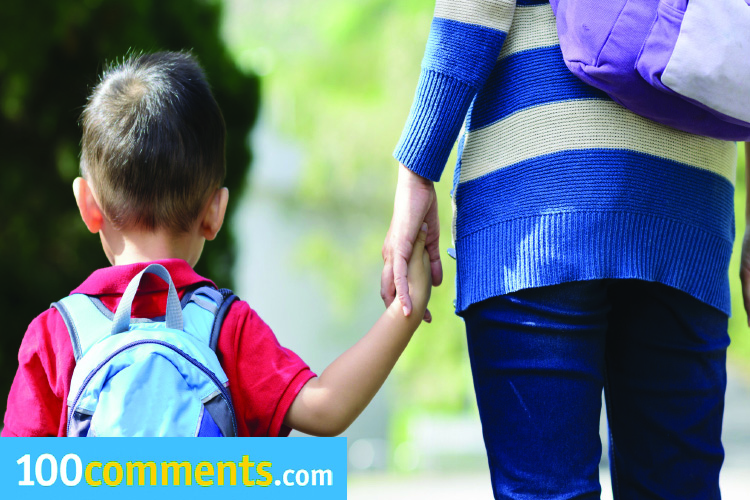Kindergarten can be overwhelming for some children, regardless if they’ve been exposed to other forms of classes such as play centers, enrichment classes, playschool, etc.
For one, the sheer volume of other kids who are attending kindergarten may make a little one nervous, if not anxious.
Here are some ways to ease the transition so that both your child and you can sail through the very first day of kindergarten.
Table of Contents
Talk about it beforehand
At least a month before your child is due to attend his or her first kindergarten class, discuss the matter together. It will help if you express enthusiasm and excitement about all there is to learn in kindergarten. You may try to evoke responses from your child to see how he or she feels about the whole thing, but if your child seems not interested in the idea of kindergarten, remember that you can cross that bridge when you get there, so don’t lose it. Forcing the topic does little to help and the objective is to make kindergarten something exciting to look forward to, rather than something to fear or loathe.
Have trial runs away from each other
This is especially important if you and your child have barely been apart before for more than a few hours. Having a trial run of being away from each other will help you gauge how junior will deal with separation anxiety or if there will be any at all. Try leaving him with a relative or close family friend (at their home), or suggest a sleepover at an aunt or grandparent’s house. Seeing how your child reacts to being without you might help you factor out ways to ensure him or her that everything is going to be alright when you’re not around for a few hours. It will be even better if the person you leave your child with can help to replicate a class session, with fun lessons, games, etc.
Meet up with future classmates
If you happen to know who your child’s future classmates are, try calling up their parents and setting up playdates so that they can familiarise with each other. Parents will rarely mind, for the benefits are mutual. That way, when your little one and theirs go to kindergarten for the first time, they would already be familiar with one another, and that may help to ease any separation anxiety.
On the First Day
When the day has finally come to go to kindergarten for the first time, be prepared for anything and let the morning run its course as calmly as possible. Depending on your child’s eagerness, you can either liven up the conversation about kindie or you could go about the morning like it’s just another day. Subsequently, you can also try the following:
Bring along a comforting item
If there is something particularly comforting from home that your child may like to bring along to class, like a doll, teddy bear or blanket, let him or her take it. The presence of a familiar object can give your child a sense of security in a new environment.
Help junior get oriented
The first few days at kindergarten will probably be filled with other parents who are also trying to comfort and pacify their kids. It would be a good idea to take a few days leave for this till orientation period is over. Spend some time in your child’s classroom on the first day and introduce your child to the teacher and the other kindergartners. You can show junior where the bathroom is, and other key areas of the kindergarten. If there is a particular corner that you know your child fancies, such as an arts and crafts area or a reading corner with lots of story books, spend some time with your child there to ease his or her anxiety.
Respond to distress
If your child appears anxious and overwhelmed, do not scold or belittle this shortcoming for it’s never intentional. Just remain cheerful and reiterate that you will be back at the end of the school day and remind junior to have fun learning exciting new things.
At this point, many parents resort to bribing with new toys, candy and even money, which is not a good idea at all. It may get your child used to the idea of bribery, which can quickly become a hard habit to break.
The art of leaving
Establish cheerful but brief goodbyes that don’t drag or worse, indicate that you really don’t want to leave, for your child will sense it and will not want you to go! Some children may take to a loving goodbye ritual, such as a playful tickle, a super-tight hug or a secret handshake, etc. Again, remind your child when you will return to pick him or her up, and make sure you are not late in doing so.
After you’ve left the classroom, don’t come back till the class is over. Rest assured that in case of an emergency, you will be notified by the teachers. No matter what, don’t slip out of the room unnoticed, for it may jeopardize your child’s trust in you and your return.
















